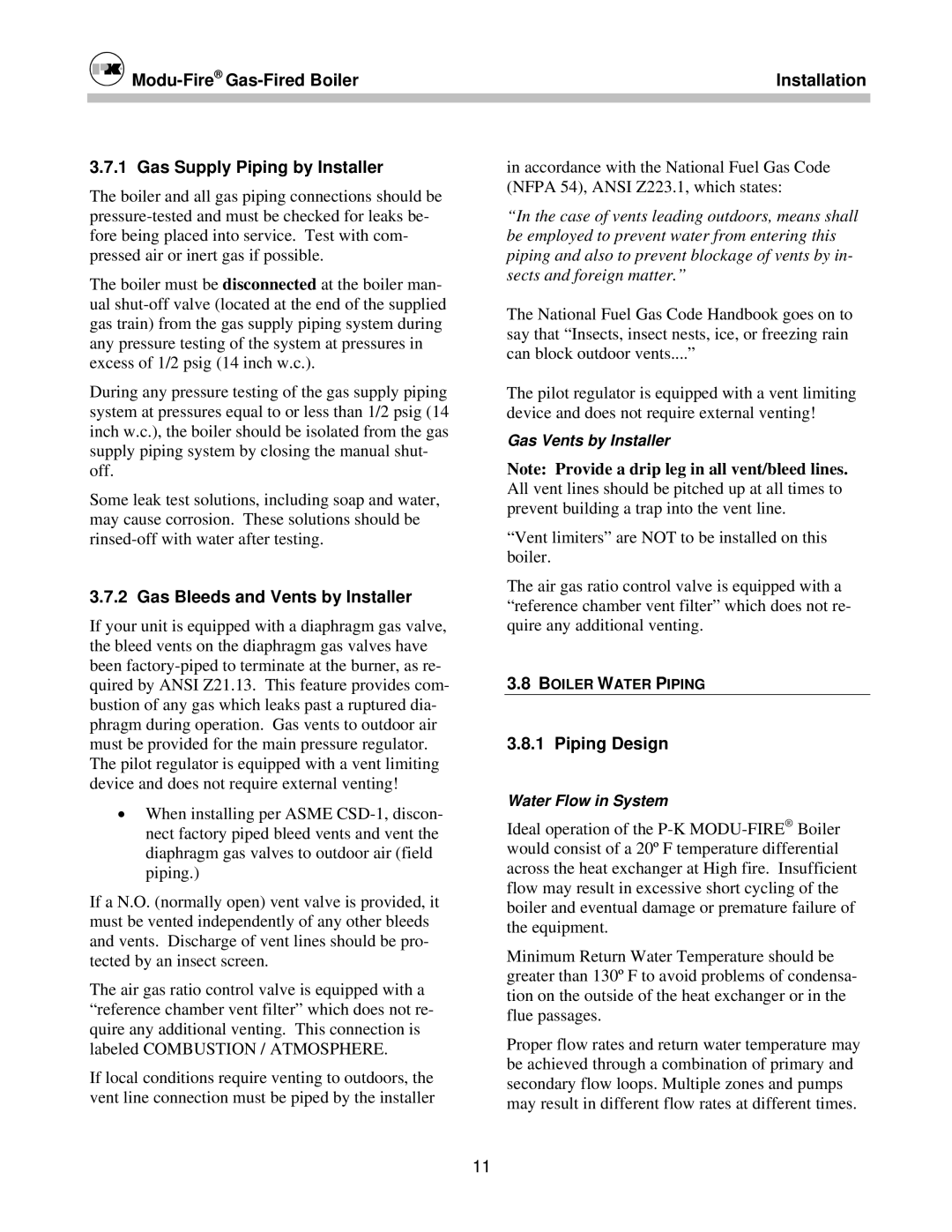

Modu-Fire® Gas-Fired Boiler
3.7.1 Gas Supply Piping by Installer
The boiler and all gas piping connections should be
The boiler must be disconnected at the boiler man- ual
During any pressure testing of the gas supply piping system at pressures equal to or less than 1/2 psig (14 inch w.c.), the boiler should be isolated from the gas supply piping system by closing the manual shut- off.
Some leak test solutions, including soap and water, may cause corrosion. These solutions should be
3.7.2 Gas Bleeds and Vents by Installer
If your unit is equipped with a diaphragm gas valve, the bleed vents on the diaphragm gas valves have been
•When installing per ASME
If a N.O. (normally open) vent valve is provided, it must be vented independently of any other bleeds and vents. Discharge of vent lines should be pro- tected by an insect screen.
The air gas ratio control valve is equipped with a “reference chamber vent filter” which does not re- quire any additional venting. This connection is labeled COMBUSTION / ATMOSPHERE.
If local conditions require venting to outdoors, the vent line connection must be piped by the installer
Installation
in accordance with the National Fuel Gas Code (NFPA 54), ANSI Z223.1, which states:
“In the case of vents leading outdoors, means shall be employed to prevent water from entering this piping and also to prevent blockage of vents by in- sects and foreign matter.”
The National Fuel Gas Code Handbook goes on to say that “Insects, insect nests, ice, or freezing rain can block outdoor vents....”
The pilot regulator is equipped with a vent limiting device and does not require external venting!
Gas Vents by Installer
Note: Provide a drip leg in all vent/bleed lines. All vent lines should be pitched up at all times to prevent building a trap into the vent line.
“Vent limiters” are NOT to be installed on this boiler.
The air gas ratio control valve is equipped with a “reference chamber vent filter” which does not re- quire any additional venting.
3.8BOILER WATER PIPING
3.8.1 Piping Design
Water Flow in System
Ideal operation of the
Minimum Return Water Temperature should be greater than 130º F to avoid problems of condensa- tion on the outside of the heat exchanger or in the flue passages.
Proper flow rates and return water temperature may be achieved through a combination of primary and secondary flow loops. Multiple zones and pumps may result in different flow rates at different times.
11
